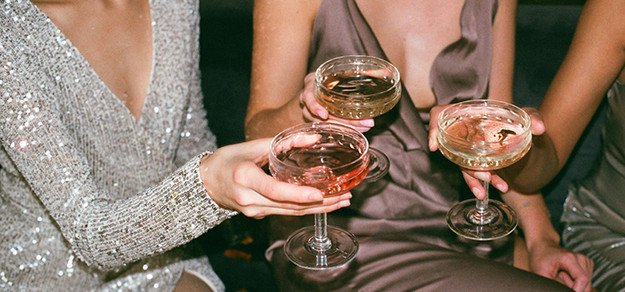Alcohol And Teeth Grinding
11th Jul 2020

After a night of drinking, have you ever woken up with sore jaw muscles or other symptoms that made you think like your bruxism has gotten really bad? As you may suspect, there is a connection between alcohol and teeth grinding. While alcohol consumption may not be the primary cause of bruxism (teeth grinding), it has been known to make grinding and jaw clenching worse.
The relationship between drinking alcohol and bruxism is clear: Those who drink alcohol are more likely to have bruxism, and bruxism is often worse after a night of drinking. Researchers aren’t sure exactly why this is the case, but they have a few ideas.

Why Drinking Can Cause Grinding and Clenching
The connection between alcohol and teeth grinding isn’t entirely clear, and there is not enough evidence to say drinking alcohol definitively causes bruxism. However, many experts believe alcohol intensifies teeth grinding. According to Cherrywood Dental Associates, “Grinding your teeth can get worse after drinking alcohol or caffeine.”
Some research also shows bruxism and alcohol may be linked. A literature review published by the Journal of the American Dental Association found sleep bruxism was highly associated with alcohol use. In the studies reviewed, those who drank alcohol were twice as likely to have bruxism than those who didn’t drink alcohol.
Related Articles:
One possible explanation for the connection between alcohol and bruxism is alcohol affects the sleep cycle, which can lead to various sleep disorders. One piece of this is drinking alcohol can block REM sleep and interrupt circadian rhythms. Additionally, people who drink alcohol are more prone to sleep apnea, which is one of many medical conditions associated with bruxism.
If you tend to wake up after a night of drinking with increased jaw pain, facial pain, or other bruxism symptoms that are worse than normal, you might consider reducing your alcohol intake. Wearing a night guard can also help protect your teeth from bruxism.

How Night Guards Can Help
Regardless of the cause or severity of your bruxism, a night guard can help relieve your symptoms and improve your oral health.
Your night guard protects you from the effects of bruxism by acting as a barrier between your upper and lower teeth. When you wear a night guard, you should experience fewer and less severe bruxism symptoms like facial pain or jaw soreness.
Related Articles:
Conclusion
If you suspect alcohol makes your teeth grinding worse or if you need a new night guard for your bruxism, talk to your dentist about your mouthguard options.
At Pro Teeth Guard, you can get a custom-fit mouthguard at an affordable price. We make our night guards in a professional dental lab, and we back every night guard’s comfortable fit with our 110% money-back guarantee.
Additionally, if you need help with alcohol addiction, call American Addiction Centers (AAC) at 1-866-511-1308.
Sources:

- Most Popular
- Hard Outside, Soft Inside
- 2MM Thick
- Moderate / Heavy

- Most Durable
- Hard Materials
- 1.5MM Thick
- Heavy / Severe

- For Day Time Use
- Thin, Barely Visible
- 1MM Thick
- Light / Moderate

- For Clenching
- Flexible & Soft
- 1.5MM Thick
- Light / Moderate

